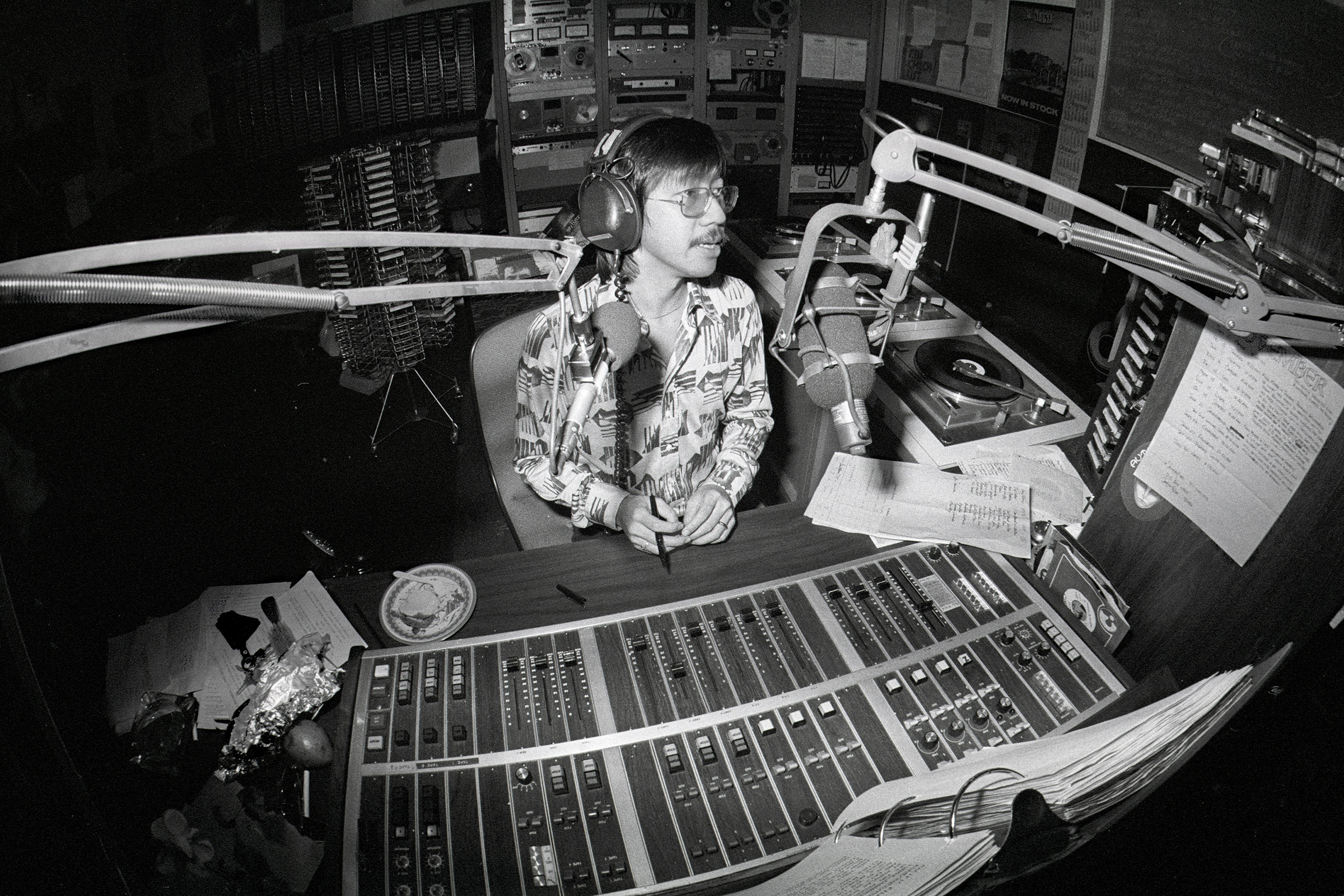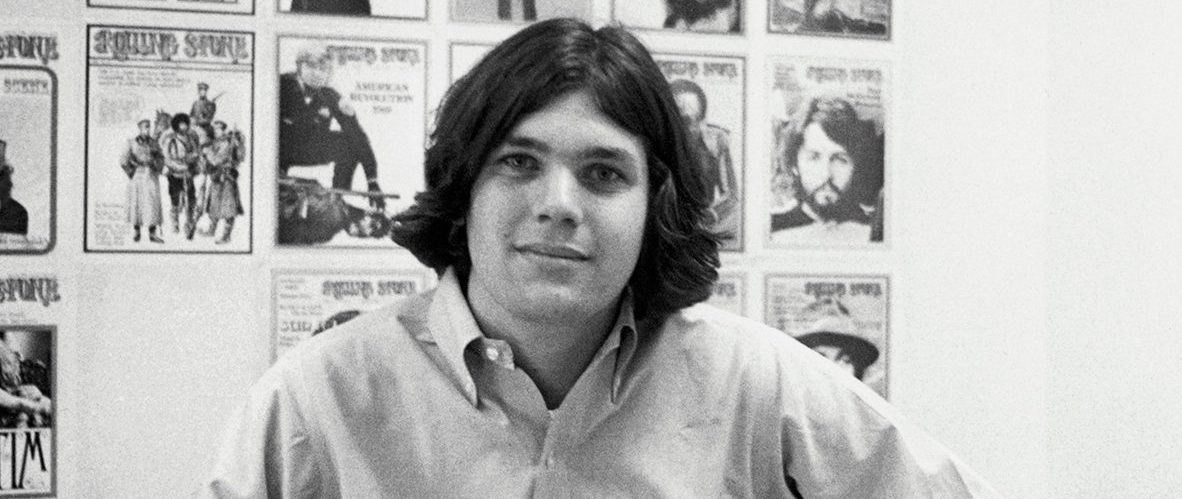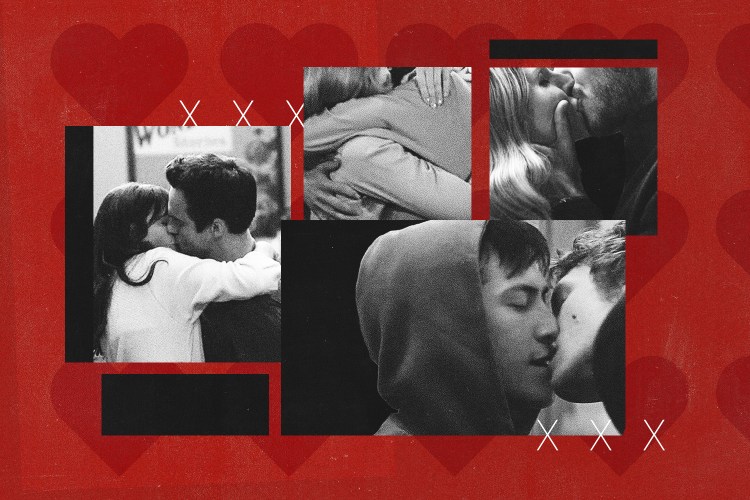Earlier this week, Rolling Stone co-founder Jann Wenner released his memoir — the aptly titled Like a Rolling Stone — and since then, he’s been on a media blitz, giving interviews to a slew of publications promoting the book and appearing with his pal Bruce Springsteen at the 92nd Street Y on Tuesday night to chat about it in front of audience members who paid $100 apiece to watch the hour-long conversation.
Along the way, the now-retired Wenner, who sold Rolling Stone to Penske Media in 2017, handed over the reins to his son Gus and no longer is involved in any of the publication’s operations, has said some truly mind-boggling things. A lot of it is out-of-touch in all the ways you might expect from a wealthy 76-year-old white man who insists he doesn’t read magazines anymore. Some of it is a goofy display of ego. But some of it is flat-out sexist and, frankly, enraging.
Below, we’ve rounded up all the worst things that have escaped his mouth during this press cycle.
He’s not a fan of new music
This should probably not come as too much of a surprise to anyone who read Rolling Stone during Wenner’s reign, but like many of his Boomer peers, he’s completely uninterested in new music of any genre. They don’t make ’em like they used to, rock is dead, blah blah blah.
“There’s a lot of good stuff, and there’s a lot of trash and trivial stuff,” Wenner told Billboard. “Honestly, I don’t think it’s as good as [rock ’n’ roll]. I don’t think the singing is good, and I don’t think the arranging is good. Historically, it’s another turn in the cycle. Whether rock ‘n’ roll is going to come back — possibly not, because the sound is so different, and the circumstances are different. But I’m kind of stuck with the music I liked when I was young. Give me the Stones. There’s a new Bruce [Springsteen] record coming out this fall, which is stunning. I’m listening to that.”
“I think young people’s music is very important to young people,” he said to Variety. “It’s full of politics and emotion and love and ideas. And it’s not quite as compelling or as good, I think, as our era. So the way they handle it and what they have to say about what they focus on… I don’t look at it that much and I don’t judge it that much. I just know it’s really not stuff for me. I know some of [current music] is very good. Harry Styles is a good singer, but it’s not grabbing me in any way. K-pop doesn’t interest me. It’s a different era. I don’t want to judge it.”
The “rock is dead” argument has been around forever — any Almost Famous fan will remember when young Rolling Stone writer William Miller is told by Lester Bangs in 1973 that he arrived just in time for rock’s “death rattle” — and it remains incredibly stupid. (For the last time, rock isn’t dead, it’s just not dominating the Top 40 like it used to, and you’re just too old and out-of-touch to make the effort to seek it out.) But it’s especially disappointing to hear it coming from someone like Wenner, who at one point in his life built a career around having his finger on the pulse. “I’m sorry to see it go,” he whined to the New York Times about rock ’n’ roll. “It’s not coming back. It’ll end up like jazz.”
“I don’t read Rolling Stone that much,” he added. “I don’t read that many magazines. It’s about people I’m not personally interested in. I don’t really care for K-pop. I don’t really know who Cardi B is.” Imagine being proud of that.
He doesn’t think Rolling Stone exploited Britney Spears
One of the more fascinating Wenner interviews this press cycle comes courtesy of Yahoo, who pressed him on whether — given everything we now know about the hell Britney Spears went through during her early career — Rolling Stone‘s 1999 cover photo of a scantily clad 18-year-old Spears laying on a bed was exploitative. Unsurprisingly, Wenner doesn’t think it is and instead opted for a vaguely victim-blaming response: “[Photographer David La Chapelle] got her in her little teenage stuff, her bicycle and short-shorts and hot bikinis. And her own self-sexualization was so strong. And this was just representing that. We weren’t doing anything to overly sexualize her, just picking up our cues from her. I don’t know if that was her idea, but she certainly had agency. Certainly, everything you look at with Britney, she knew what she was doing this entire time. … So, I think that [criticism of the cover] is all wrong. To her credit, it was great stuff. It’s memorable, and it’s not at all perverse or weird or anything. She’s fully clothed. She’s just making a statement about her sexuality — and that’s what her music did, you know? And that was the message out there: that if you think teenagers are not coming close to this level of adult sexuality, you’re mistaken and you’re not talking to your kids. You’re not seeing what’s going on society.”
It’s obviously true that teens have sex (and that them doing so is healthy and natural), but that doesn’t make grown men leering at teen sexuality or profiting off of it any less gross. And isn’t infantilizing her on the cover by having her holding a stuffed animal to cater to men’s sexy-baby fantasies a little “perverse or weird”? Anyone who watched Framing Britney Spears knows that the pop star certainly did not have as much agency as she should have during this period. But even if it was her idea to “self-sexualize,” is that really a decision that someone whose prefrontal cortex is not yet done developing is capable of making? And Wenner pretending he’s not guilty of exploiting Spears is absurd; the man owned Us Weekly — you know, the publication that at one point was spending $140,000 a week on paparazzi photos of her.
He’s a glamorous bon vivant who’s “gonna save the world tomorrow”
Variety asked Wenner about his friendships with Bruce Springsteen, Bono and Mick Jagger, and when the publication asked him, “Do you find a different reflection of yourself in each of them?”, he responded thusly: “Absolutely. I’m exuberant like Bono, and we’re gonna save the world tomorrow. I’m like deep, thoughtful Bruce, and we’re gonna save the world tomorrow. And with Mick, we’re gonna go out dancing. [Laughs.] With Mick, I share this kind of bon vivant, social, glamour world, and just kind of a silly shout, a level of just leading a jet set life, you know. Yeah, I’m a bit of all of that. But they’re all really wonderful people to be with and hang with — all deep, meaningful people.”
Even if we set aside for a moment how deeply embarrassing it is for someone to refer to themselves as “deep, thoughtful” and a “bon vivant,” this still reads as woefully out-of-touch. “We’re gonna save the world tomorrow,” really? Wenner, Bono, Springsteen and all the other Boomers who love to pat themselves on the backs for the countercultural rebellion of the ’60s but refuse to acknowledge the yuppie conservatism their generation eventually sold out for in subsequent decades have had over half a century to save the world. Instead, they left a giant mess. (By the way, what’s the carbon footprint of that “jet set life,” Jann?)
He decided to write his memoir because he hated Sticky Fingers, his 2017 biography, so much
Wenner’s pretty open about the fact that he decided to write Like a Rolling Stone because he was deeply dissatisfied with the way that Sticky Fingers: The Life and Times of Jann Wenner and Rolling Stone Magazine — the 2017 biography by Joe Hagan that drew from more than 100 hours of interviews with the Rolling Stone publisher — turned out.
“I made a terrible choice of a writer, who turned out to be a gossip reporter more than a really careful in-depth writer,” Wenner said in his New York Times interview. “I gave him this great opportunity to look at my archives, but he was too interested in the sensational gossip stuff.” Hagan, to his credit, responded with the following statement: “I still have an affection for Jann and I’m flattered that I could inspire him to write his own book, even if he fails to credit me. While his ‘gossip’ comments are hilarious coming from the former publisher of Us Weekly, I also find it sad how blind he is to the journalistic ambition of my book, which was an homage to the style and spirit of Rolling Stone at its best — Jann’s true legacy.”
Hagan’s right that it’s pretty rich for Wenner of all people to feign outrage over a book being too gossipy. For someone who name-drops as frequently as he does in Like a Rolling Stone, it’s odd that Wenner would pretend like spilling tea is beneath him. The two biggest revelations in his book have to do with Mick Jagger sleeping with Annie Leibovitz and Angelina Jolie tipping off the paparazzi responsible for the first photo of her and Brad Pitt together (taken while Pitt was still married to Jennifer Aniston). Are we supposed to believe that those salacious details are actually the result of hard-nosed journalism and not just the kind of thing Wenner would whisper over drinks with friends?
Despite being good friends with Mick Jagger, he has no interest in going to a Rolling Stones show these days
Many of the interviews Wenner has done so far about Like a Rolling Stone spend a good chunk of time covering his decades-long friendship with Mick Jagger and the potential conflict of interest it presented during Wenner’s time at the helm of Rolling Stone. But in his conversation with the New York Times, Wenner admits that he’s got no desire to go to a Rolling Stones concert these days because they’ve become an “oldies revue.” “Since I have to use a cane to get around, going to see them at a coliseum, it’s just like, why?” he said. “It’s an interesting show, but I’ve seen it 20 times.”
Wenner did note that if the Stones played the Barclays Center in Brooklyn, he’d go. (A weirdly specific New York venue choice — he’s willing to schlep out to Brooklyn from his home in Montauk, but Madison Square Garden is a bridge too far?) “Now they’re older and Keith has certainly slowed down,” he continued. “Mick is still a miracle, but he’s so old looking. I don’t mind, but they look like people out of Lord of the Rings or something.”
Yikes. First of all, somebody get this guy a mirror. You can’t talk about your own lack of mobility preventing you from attending concerts and then complain about someone else looking too old in the same breath. And it’s especially weird for Wenner, who has made it clear that he wants nothing to do with contemporary music, to pretend like he cares about rock stars being old. But beyond that, what an objectively cruel thing to say about someone you claim to be good friends with! Of course, it’s hard to read tone of voice in print, and it’s entirely possible Wenner was going for some good-natured ribbing between pals here, but given everything we know about Jagger’s vanity (not to mention Wenner’s admission to Billboard that the pair “don’t see [each other] as much” anymore), it seems unlikely.
He thinks today’s music is “too trivial” and lacks cultural relevance because it’s “driven by teenage girls”
Of all the dumb stuff Wenner has said this press cycle, this one’s arguably the most galling. He told the Times that one of the problems with new music these days is that it’s not pushing for social change the same way the bands of his era did. Writer Maureen Dowd presents it like this:
“The concerns have become very trivialized,” Mr. Wenner said. “It’s a lot of Taylor Swift and her disagreements with her celebrity boyfriends.” When he started the magazine, he writes, the readership was 90 percent male, and the star writers were male. “It was a macho era,” he told me. (Later, he said, readership evened out.)“The music today is driven by teenage girls,” he said. “Today’s music, hip-hop, pop music, I don’t listen to as much, and I don’t think it is as culturally relevant as it used to be, nor is it musically as good. But I think some of it, particularly hip-hop, is very strong and tough.”
First of all, nothing says “I’m a bitter old guy who has no idea what he’s talking about” quite like implying that Gen Z is only concerned with Taylor Swift’s “disagreements with her celebrity boyfriends.” But to extoll his own generation’s social consciousness while simultaneously glossing over his magazine’s sexism — was it “a macho era,” or was it that most of the talented female music journalists of that time were shut out of an industry that dismissed them as groupies? — is outrageous. It’s fair to criticize Swift for not using her massive platform to speak out about social and political issues early in her career, but she’s made up for lost time in recent years, advocating for LGBTQ rights, speaking out against Trump and urging her fans to register to vote (and vote blue). To dismiss her, her music and her concerns as “trivialized” is ignorant, and the way that Wenner uses “driven by teenage girls” as a synonym for inconsequential reeks of misogyny.
Teen girls have been leading the charge when it comes to music fandom for decades, and to pretend otherwise is ridiculous. Who, exactly, does Wenner think was responsible for Beatlemania? You’d think someone who listens pretty much exclusively to classic rock would be able to recognize that music has been “driven by teenage girls” for longer than his magazine has existed.
To imply that pop and hip-hop aren’t “culturally relevant” — especially in recent years, in the wake of the murder of George Floyd, when countless artists have spoken out in support of the Black Lives Matter movement and addressed it in their work — is completely asinine. Just because Wenner hasn’t bothered to pay attention doesn’t mean there aren’t contemporary artists working to undue the racist power structures his generation left in place.
He’s got a weird double standard about sexy Rolling Stone covers
Wenner seems to contradict his stance on the Spears cover with a quote in his Times interview where he attempts to explain that there’s a difference between the famous nude cover of John Lennon and female pop stars posing suggestively on the cover. “A big difference,” he said. “John Lennon being naked on the cover was a statement. How would the most popular man in the world be willing to go out and be naked? It’s so destroying. They were willing to place their fame, to put it in danger to make the statement: ‘Here’s the honest truth about people, about sex, about nudity.’ Now JLo goes out and it’s like, ‘I’m doing this to sell like hot cakes. I’m not doing this for a reason.’”
To be clear, the Jennifer Lopez cover he’s referring to didn’t actually involve any nudity — just a plunging neckline. And why is he clutching his pearls over this but defending the Spears cover (or any other of the many instances of female artists appearing on sexy covers during his time at Rolling Stone)? Why does there have to be a “statement” or a reason, especially if the statement he’s so proud of is just “the honest truth is that sex and nudity are no big deal”? Aren’t we past that already?
Let’s not pretend that Lopez is the only one who believes sex sells. There’s a reason so many Rolling Stone covers feature(d) semi-nude women; Wenner was doing it “to sell like hot cakes” too. He can pat himself on the back all he wants for the message behind the Lennon cover too, but he never would have run that one either if he didn’t know that a naked picture of the most famous man in the world would sell magazines.
This article appeared in an InsideHook newsletter. Sign up for free to get more on travel, wellness, style, drinking, and culture.
























